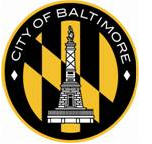Mayor Rawlings-Blake, Latino Economic Development Center Announce Grand Opening Of New Satellite Office
Wednesday Jun 4th, 2014

FOR IMMEDIATE RELEASE
BALTIMORE, Md. (June 4, 2014)—Today, Mayor Stephanie Rawlings-Blake joined Marla Bilonick, interim executive director for the Latino Economic Development Center (LEDC), to announce the opening of a new LEDC satellite office in Baltimore City. The satellite office—located on Eastern Avenue in space donated by the Southeast Community Development Corporation—will provide additional support and tools to existing and potential immigrant business owners in Baltimore City, including micro-loans, technical assistance, and training.
“Research shows that entrepreneurship is quite prevalent in the immigrant community,” said Mayor Stephanie Rawlings-Blake. “Developing the necessary tools to ensure immigrants have access to entrepreneurial opportunities is vital in making Baltimore a welcoming city. LEDC’s business services will be essential to creating a prosperous environment for immigrant and other minority business owners by providing them with capital, and the advisory and technical assistance needed to reach their full potential.”
Funded by the Community Development Block Grant and a grant from the Abell Foundation, the LEDC helps small business owners and aspiring entrepreneurs learn basic business skills and gain access to credit to compete, thrive, and provide for their families and communities.
“Capable entrepreneurs of diverse backgrounds are often excluded from accessing business loans through the formal financial sector,” said Marla Bilonick, interim executive director for the Latino Economic Development Center. “LEDC is thrilled to expand our small business lending services to neighborhoods like Highlandtown and the greater Baltimore area through our Community Asset Fund for Entrepreneurs to equip business owners with the capital to improve their lives and strengthen their communities.”
Immigrant-owned businesses are being established at three times the national average and rapidly expanding their assets. This new office location is ideal not only due to its proximity to a growing number of small immigrant business owners in the area, but also because of the range of services already in existence, such as Main Streets and the Highlandtown Merchants Association.
"Highlandtown's shopping district has reinvented itself largely with the help of a new crop of immigrant-owned businesses.” said Chris Ryer, director of the Southeast Community Development Corporation. “It has been said that foreign-born Americans begin small businesses at twice the rate of native-born Americans, and I believe that is true in Highlandtown. Immigrants of many nationalities have contributed to halving the commercial vacancy rate in the last five years. The LEDC will help us to sustain these businesses and attract more to continue our revitalization."
The LEDC is a community-based nonprofit that equips people with the skills and financial tools to buy and stay in their homes, keep their rental housing affordable, and start or expand small businesses. Since 1997, LEDC has operated a successful micro-loan program, offering loans from $5,000 to $50,000 for small businesses unable to access traditional credit markets—helping more than 600 entrepreneurs access over $7 million in capital to start or expand their small businesses.
The Community Asset Fund for Entrepreneurs (CAFE), the new face of LEDC’s lending program, equips entrepreneurs with the capital to improve their lives and strengthen the small business community. Continuing the proud tradition of LEDC’s commitment to small business success, CAFE provides business loans to qualified start-ups and existing businesses that have difficulty obtaining credit from mainstream financial institutions. These loans help entrepreneurs secure the working capital, equipment, and inventory they need to start up, expand operations, and hire or retain employees.
As a U.S. Treasury Department Certified Community Development Finance Institution (CDFI) and SBA Micro-lending Intermediary, LEDC is able to provide loans and technical assistance to small businesses that are generally unable to obtain financing from traditional financial institutions, and to legal residents applying to become new U.S. citizens.
LEDC’s opening is part of “Immigrant Heritage Month”—an initiative of Welcome.US—seeks to highlight the value in America’s strong immigrant heritage by compiling stories and initiatives supporting immigrants across the country during this month.
“The traditions of entrepreneurship and hard work are a central part of our history as a country. Most Americans, past and present, share this experience,” said Tolu Olubunmi, executive director of Welcome.US. “Programs like the new small business loan program from Latino Economic Development Center create opportunities for more families to realize the American dream of success and self-determination.”
Welcome.US is a nationwide non-profit organization supported by FWD.us, which was founded by Mark Zuckerberg, Bill Gates, and other technology leaders.